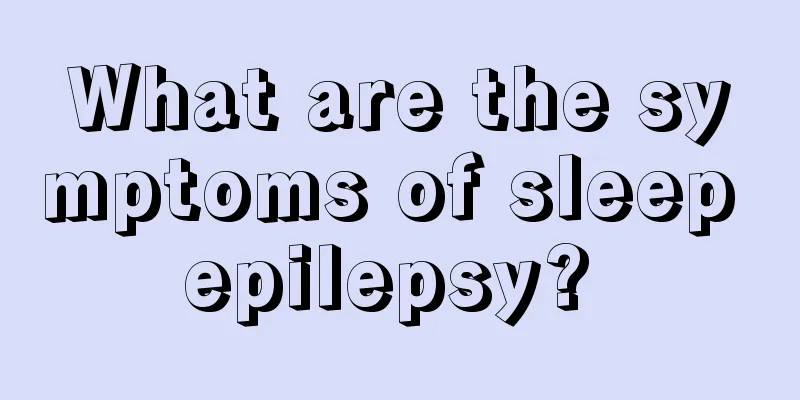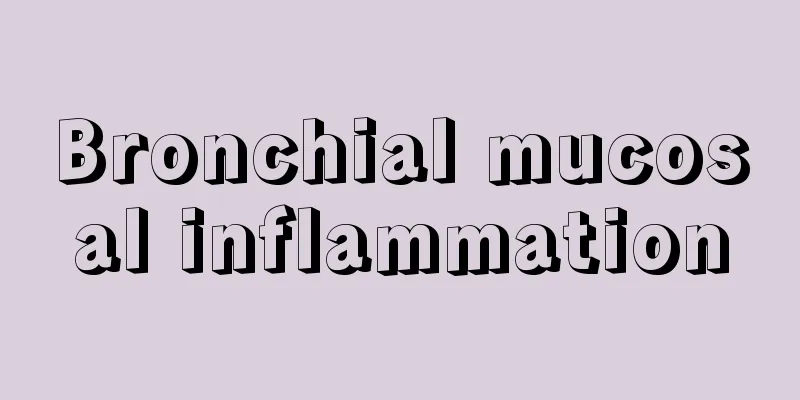What are the symptoms of sleep epilepsy?

|
Epilepsy is very common in life, and the symptoms of epilepsy are different because everyone's physical condition is different. Epilepsy can cause great harm to people. It not only affects people's normal life, but also their work. People with epilepsy must develop good living habits, avoid excessive fatigue, maintain a happy mood, and it is best to quit smoking and drinking. What are the characteristics of sleep-disordered epilepsy in children? The general symptoms of sleep epilepsy (epilepsy) are paroxysmal, accompanied by lack of energy or abnormal behavior. Common symptoms of sleep-disordered epilepsy include suddenly opening eyes, waking up, or showing signs of panic during sleep, often accompanied by dystonia or other movement disorders. In a few cases, sleep-related aggressive behavior occurs. In fact, sleep epilepsy (epilepsy) is an autosomal dominant inheritance and most of them show remarkable therapeutic effects, which are manifested by a significant reduction or even complete cessation of seizures and a reduction or disappearance of daytime discomfort complaints. Some epilepsy (epilepsy) symptoms mainly or entirely occur during sleep and the manifestations are mostly paroxysmal and may be accompanied by lack of energy or abnormal behavior. The manifestations of sleep-related epilepsy (epilepsy) in children often occur during naps or at night. Not long after falling asleep, the brain suddenly becomes uncontrollable and is accompanied by a sense of weightlessness and fear. The child is very conscious but loses the ability to control his movements. The attack usually lasts ten to twenty seconds and disappears naturally. During the day, the child is exactly the same as a normal person. This is a characteristic of the sudden onset of epilepsy. If possible, it is best for children with epilepsy to take a nap at noon. In addition, you should pay attention to your sleeping posture and develop a supine or side-lying sleeping posture. Try to avoid sleeping prone, especially for children who have frequent seizures at night. In daily life, patients with epilepsy should avoid fatigue and ensure adequate sleep. Lack of sleep can increase the excitability of the brain. If a normal person does not get enough sleep, his EEG may also show activities similar to those of epilepsy patients. Patients with sleep-related epilepsy should ensure adequate sleep. Adults should ensure at least 7 to 9 hours of sleep a day, and children should ensure at least 8 hours of sleep. Sleep has a significant impact on epilepsy. The two interact with each other and are closely related. Epilepsy attacks have a significant impact on sleep structure and sleep efficiency. Similarly, the sleep-wake cycle also affects epilepsy attacks. Among the epilepsy group, at least 25% of patients have seizures related to sleep. However, the treatment principles and prognoses of sleep-disordered epilepsy in children vary greatly. Regardless of the cause of epilepsy, sleep disorders such as irregular sleep-wake cycles or lack of sleep may become the triggering factors of sleep-related epilepsy. One-quarter of epileptic seizures occur during sleep. Patients with this type of epilepsy should pay special attention to ensure adequate sleep, not stay up late at night, and develop a good habit of sleeping on time every day. When diagnosing epilepsy, it should be differentiated from some sleep disorders and should be actively treated after diagnosis to avoid repeated attacks of epilepsy that affect neuropsychiatric functions. More than half of children with sleep-onset epilepsy have psychological problems. The onset of epilepsy may be related to the patient's physical fitness and personality. Mental stimulation is also the main factor that promotes epileptic seizures. Various stress stimuli may induce epileptic seizures. The main clinical feature of sleep-onset epilepsy is abnormal behavior that varies greatly during sleep at night. Common symptoms include suddenly opening eyes during sleep, awakening, or panic symptoms, often accompanied by dystonia or other movement disorders. In a few cases, sleep-related aggressive behavior occurs. Attacks may occur frequently throughout the night, up to dozens of times. It can easily be mistaken for night terrors or other sleep disorders. |
<<: What are the symptoms after quitting smoking for 21 days?
>>: The first symptoms of thermal insulation?
Recommend
How many years does bile duct cancer last?
Cholangiocarcinoma is not easy to detect because ...
What causes cervical cancer?
At present, more and more people are suffering fr...
What are the early symptoms of breast tumors?
Breast tumors are becoming more and more common. ...
Teach you how to massage the clitoris to experience orgasm
According to extensive surveys by sexologists, mo...
How can I relieve armpit sweating?
People like to sweat when the weather is hot, and...
What are the symptoms and manifestations of prostate cancer? How long can you live with prostate cancer?
Prostate cancer is a malignant tumor with a very ...
Six precautions to help maintain health during the Grain in Ear solar term
The Grain in Ear solar term means that the temper...
What is the cause of headache and dizziness
Headache and dizziness are common symptoms in our...
Who is not suitable for using tea pillow
With the gradual improvement of living standards,...
What diseases can acupuncture cure
Acupuncture is a very important technique in trad...
There is a foreign body sensation in the throat and the neck hurts. Is it esophageal cancer?
A foreign body sensation in the throat and neck p...
How to prevent fibroids
How to prevent fibroids? Although many friends ar...
These four types of stomachaches must not be rubbed
In life, many people like to rub their stomachs w...
What are some tips for preventing chapped lips after applying lipstick?
As the saying goes, everyone loves beauty. Everyo...
Is calcium sulfate a precipitate?
Calcium sulfate is a rather troublesome substance...









